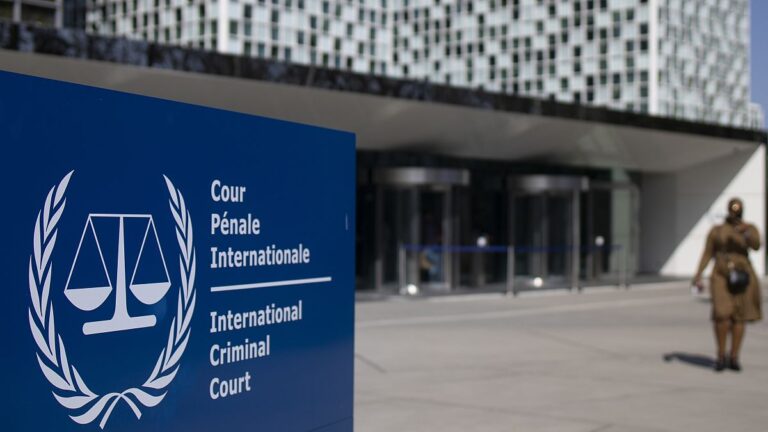The State of the Union address focuses on divisions within the EU over the Middle East, Western hesitation to arm Ukraine, strengthening EU ties with Moldova, and the issuance of a commemorative coin to mark the Normandy landings.
advertisement
This week we once again witnessed deep divisions among EU member states over the ongoing conflict in the Middle East.
The reason is the International Criminal Court’s decision to seek arrest warrants for the Israeli prime minister, defense minister and three Hamas leaders.
Reactions ranged from welcoming the Court’s decision in Belgium, France and Slovenia to various forms of condemnation of it in Germany, Austria and the Czech Republic.
Disagreements also emerged when Ireland, Spain and Norway moved together to recognise Palestine as an independent state, something that has been under discussion for some time.
“Because we have got to keep alive the hopes, the dreams and the purpose of a two-state solution at a time when, frankly, sadly, other countries are trying to undermine it,” Irish Prime Minister Simon Harris told Euronews.
“Ireland would have very much preferred this to be part of the peace process, but we cannot wait forever. It’s been decades since the Oslo Accords and a very long time.”
Ukrainian air defense
On the surface, European unity is growing over Ukraine, but when it comes to arms shipments, actions do not always match words.
Ukraine has complained that Western allies are taking too long to make key decisions as Russia appears to be stepping up its offensive in the northeast.
In the face of persistent Russian aggression, German Foreign Minister Annalena Baabock, visiting Kiev, warned that the country needed to strengthen its air defences, with Western support.
“Some of the rockets and missiles may be shot down by air defense forces, but of course not all of them. That is why I am calling for increased air defense support around the world.”
Moldova’s EU Future
One country watching the war very closely is Moldova, which is sandwiched between EU and NATO members Romania and Ukraine.
The former Soviet republic has long ignored warnings from Moscow that further integration with the West could lead to the same fate as Ukraine.
Still, Moldova signed a defense cooperation agreement with Brussels this week in a move to strengthen ties with the EU, where it is a candidate for membership, with formal talks due to begin next month.
To find out more about this, we spoke to Daniela Bidaik, Executive Director of the Soros Foundation of Moldova.
Euronews: So how important are the EU accession negotiations for Moldovans? How do people view EU membership?
advertisement
Vydaic: Yes, the upcoming intergovernmental conference is the most important political event for the pro-European Moldovan people… Moldova is an inclusive society and has achieved very good milestones in the implementation of domestic reforms towards the transformation of the state and society. And the negotiations should really move forward towards irreversibility. For Moldovans, as you asked, not only those who live in the country, but also those who live in EU member states and already have European citizenship, Moldova’s European integration is very important as a development plan, and perhaps the most important strategic plan since independence.
Euronews: We hear a lot about Russian disinformation. Can you tell us what’s going on?
Vydaik: Unfortunately, Moldova is one of the European countries most affected by Russian propaganda, which is very well coordinated by Russian political parties, Russian media, Russian social networks and Russian influencers. Since Russia’s invasion of Ukraine, Moldova has begun to face a very complex, complicated and aggressive hybrid war that undermines its development, social cohesion, independence and security. And the aim is, in fact, to polarize the population and increase skepticism about the country’s European integration, to keep the country under Russian control. That is, fake news, disinformation, Russian manipulation and interference are aimed at Moldova’s social, economic or political weaknesses, to impoverish the country and to undermine its European development.
Euronews: The constitutional referendum is coming up, with elections in October. How are these campaigns going and to what extent is the EU involved in the discussions?
advertisement
Vidaik: That’s right. In October 2024, Moldova will have two important elections. Both elections are considered very important and crucial for the future of Moldova and will take place on the same day. We have a pro-European government and a president who has announced that he will run for a second term, and a civil society and media that support European integration. And then we have pro-Russian parties and Russian media that are trying to convince people not to go to the referendum, to boycott it or vote against it.
June 1944 – June 2024
In a few weeks, the Allies will mark the 80th anniversary of D-Day, which marks the start of World War II and the liberation of Europe from the Nazis.
The Royal Mint has released a commemorative coin depicting soldiers disembarking from a landing craft as a tribute to those killed in action and surviving veterans.
Operation Overlord involved more than two million soldiers, sailors, pilots, medics and others from over a dozen nations.
advertisement
Then, on June 6, 1944, some 160,000 soldiers stormed the coasts codenamed Utah, Omaha, Gold, Juneau and Sword.
A few days ago, to celebrate the coin’s release, the design was recreated on Normandy’s Gold Beach. Very fitting.
The 35-metre diameter sand art served as a reminder of the bravery and sacrifice of Allied forces for several days.
Coins, on the other hand, are permanent.
advertisement
Source link

